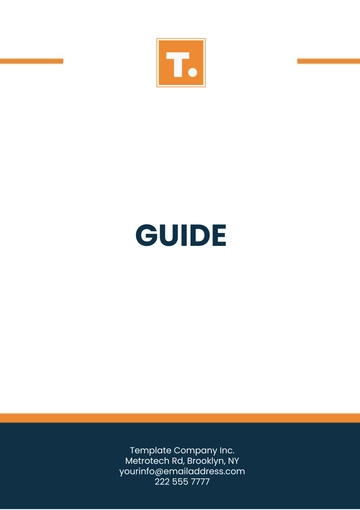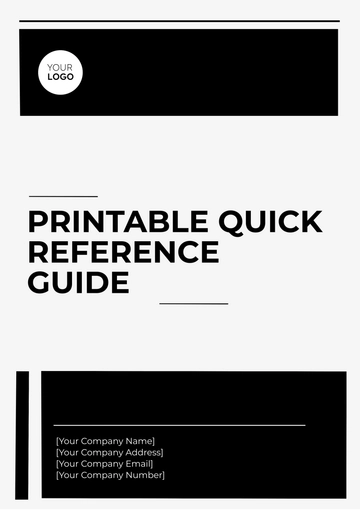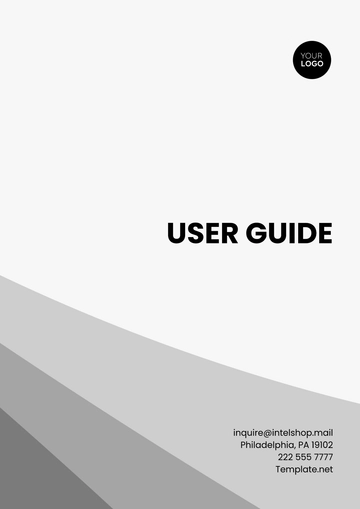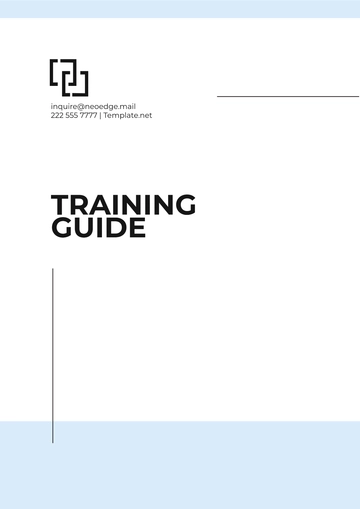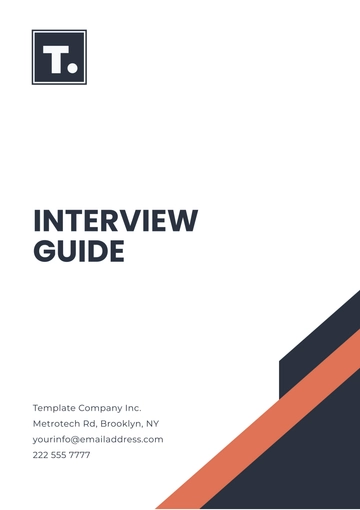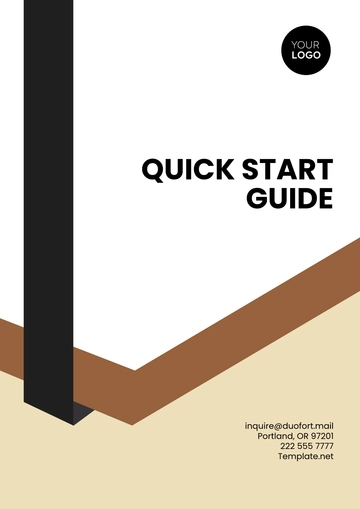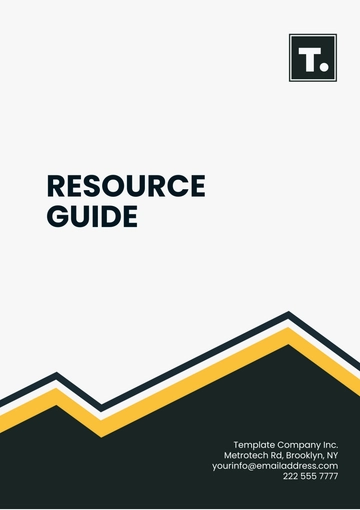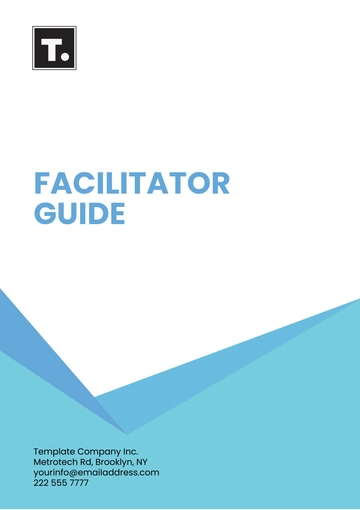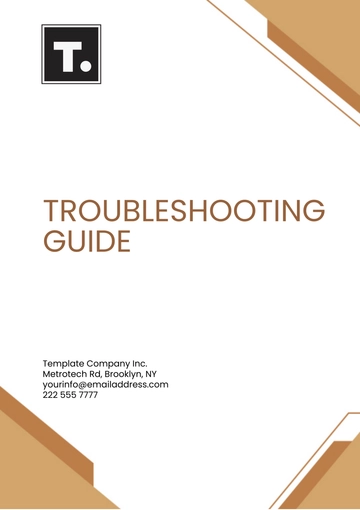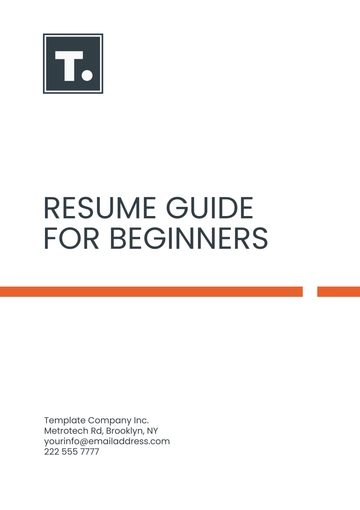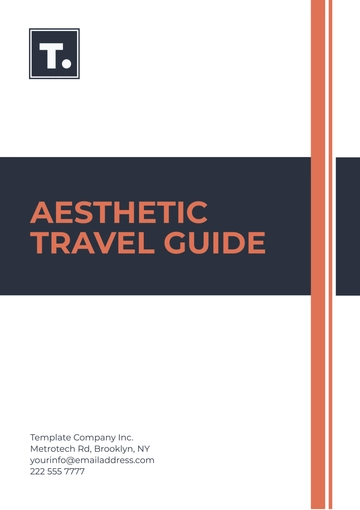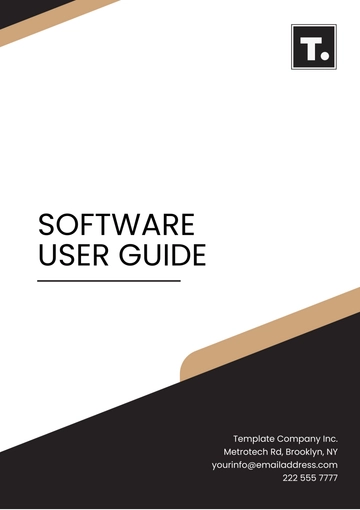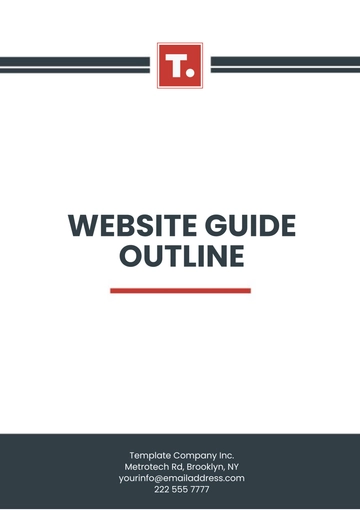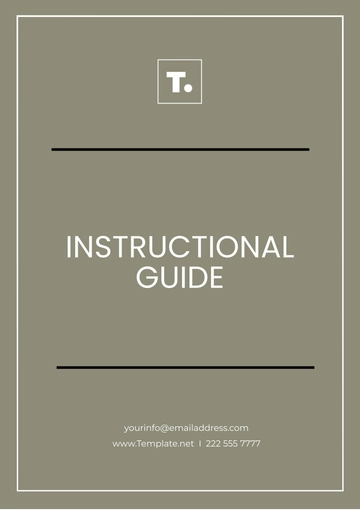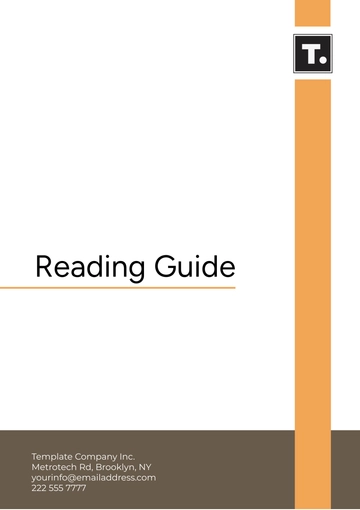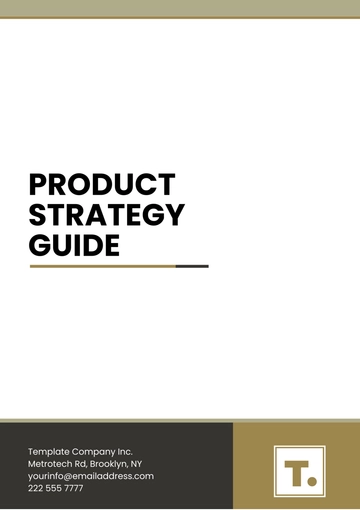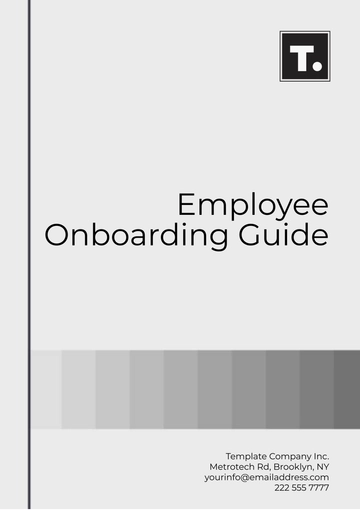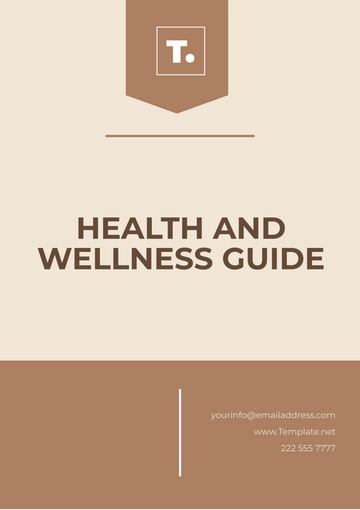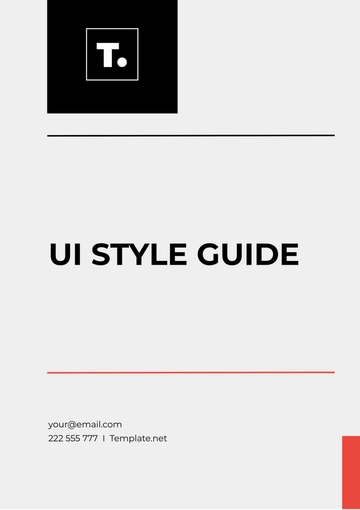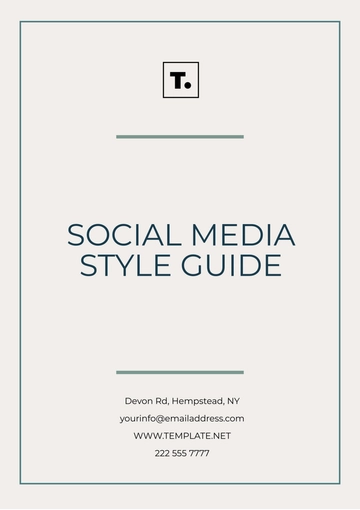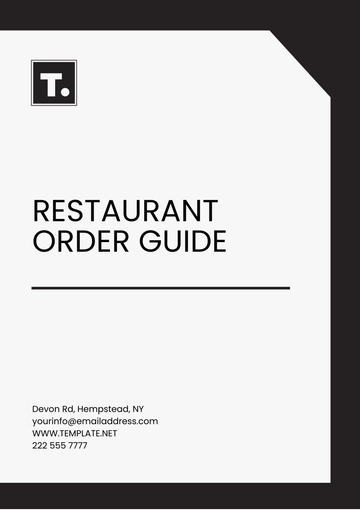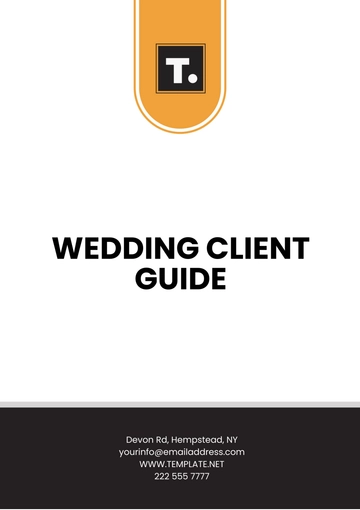Free Vocabulary Study Guide
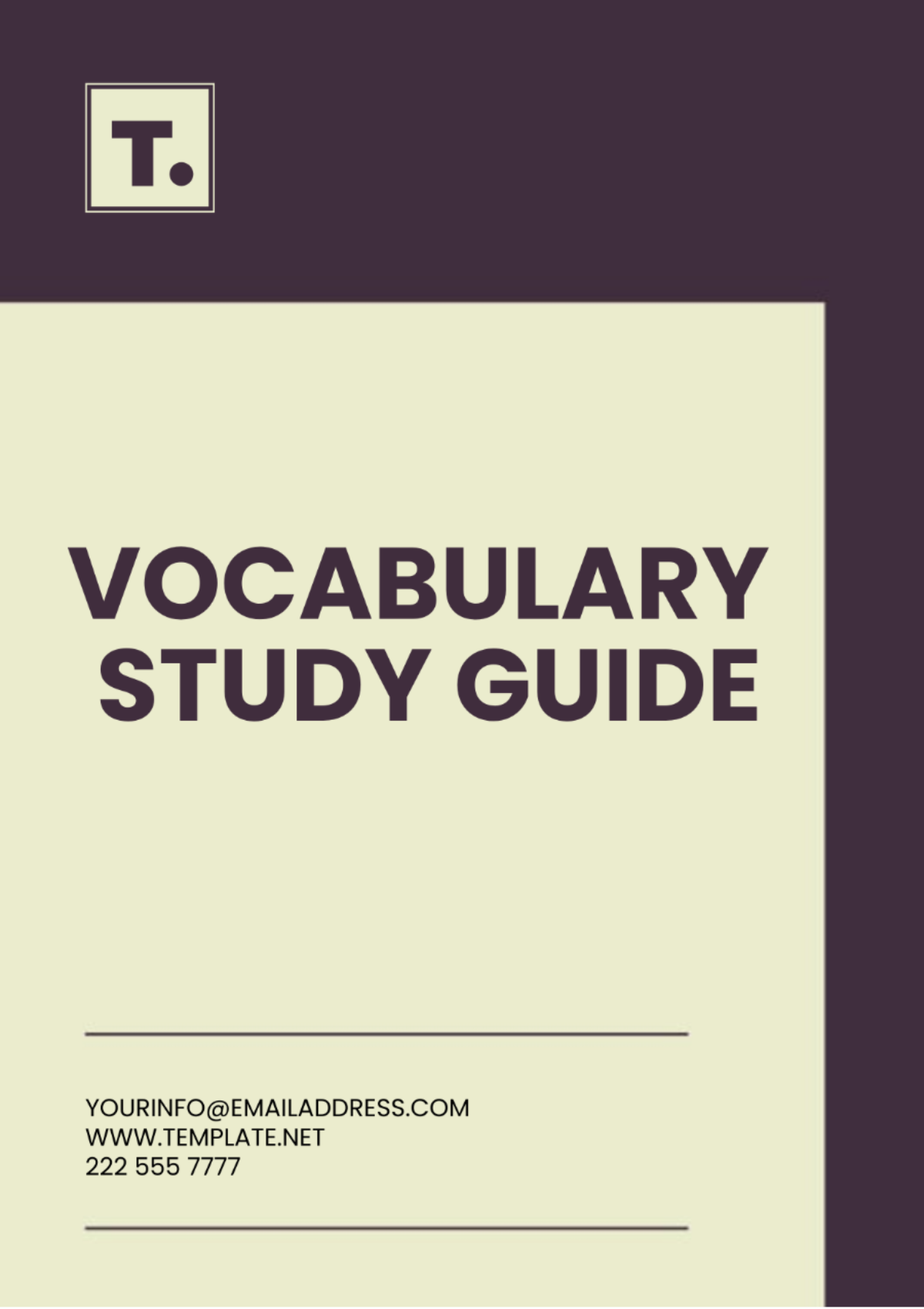
Prepared by: | [YOUR NAME] |
Institution: | [YOUR INSTITUTION NAME] |
Course: | [YOUR COURSE NAME] |
Address: | [YOUR COMPANY ADDRESS] |
Phone: | [YOUR COMPANY NUMBER] |
I. Introduction
Welcome to the [YOUR COURSE/CLASS NAME] Vocabulary Study Guide! This guide is designed to assist you in effectively expanding your vocabulary. Whether you're preparing for [EXAMS/ASSIGNMENTS/PROFESSIONAL DEVELOPMENT], this guide will provide you with the tools you need to learn and retain new words with confidence.
II. Preparing for Vocabulary Study
A. Know Your Learning Style
Identify the learning methods that work best for you, such as [VISUAL/AUDITORY/KINESTHETIC].
Gather relevant [RESOURCES/TOOLS] tailored to your preferred learning style.
Experiment with different [TECHNIQUES/METHODS] to find what works best for you.
B. Set Clear Objectives
Define what you aim to accomplish during your vocabulary study sessions.
Establish specific [GOALS/OUTCOMES] you hope to achieve.
Consider the desired [VOCABULARY SIZE/WORD USAGE] you want to master.
Track your progress with a [VOCABULARY JOURNAL/LOG].
III. Initiating Your Vocabulary Study
A. Gathering Resources
Start with a [RELIABLE DICTIONARY/THESAURUS].
Collect [FLASHCARDS/APPS] that support vocabulary building.
Subscribe to [WORD OF THE DAY SERVICES/WEBSITES] to receive new words regularly.
B. Creating a Study Plan
Organize your study sessions with clear [TIMELINES/INTERVALS].
Set aside regular times for [REVIEW/PRACTICE].
Include breaks and [VARIETY/ALTERNATE ACTIVITIES] to keep your sessions engaging.
IV. Effective Vocabulary Learning Techniques
A. Contextual Learning
Learn new words in the context of [SENTENCES/PARAGRAPHS].
Understand the word’s [MEANING/USAGE] through examples.
Read extensively in [DIFFERENT GENRES/FIELDS] to encounter diverse vocabulary.
B. Active Practice
Use new words in your [WRITING/SPEAKING] activities.
Engage in [QUIZZES/GAMES] that reinforce vocabulary retention.
Pair up with a [STUDY PARTNER/LANGUAGE EXCHANGE] to practice new words.
V. Retention Strategies
A. Repetition and Review
Regularly review your [WORD LISTS/FLASHCARDS].
Practice spaced repetition to improve long-term retention.
Use [TECHNOLOGY/APPS] that support spaced repetition systems (SRS).
B. Mnemonic Devices
Create [MNEMONIC DEVICES/ASSOCIATIONS] to remember difficult words.
Use [VISUAL AIDS/RHYMES] to enhance memory recall.
Develop [STORY-BASED TECHNIQUES/NARRATIVES] to create stronger memory links.
VI. Overcoming Challenges
A. Handling Difficult Words
Break down complex words into [ROOTS/PREFIXES/SUFFIXES].
Use online resources to find [SYNONYMS/ANTONYMS] and practice.
Record and [REPLAY PRONUNCIATIONS] to get familiar with difficult words.
B. Staying Motivated
Set [REWARD SYSTEMS/MILESTONES] to track your progress.
Join a [STUDY GROUP/CLASS] to stay engaged and motivated.
Celebrate [SMALL SUCCESSES/PROGRESS] to keep motivation high.
VII. Conclusion
This Vocabulary Study Guide is designed to create a structured and efficient learning experience. By adhering to this guide, you can ensure your vocabulary study is productive, professional, and beneficial for your academic and professional growth.
Should you have any questions or require further assistance, please do not hesitate to contact [YOUR NAME] at [YOUR EMAIL] or call [YOUR COMPANY NUMBER].
- 100% Customizable, free editor
- Access 1 Million+ Templates, photo’s & graphics
- Download or share as a template
- Click and replace photos, graphics, text, backgrounds
- Resize, crop, AI write & more
- Access advanced editor
Discover the ultimate tool for mastering vocabulary with the Vocabulary Study Guide Template from Template.net. This meticulously crafted resource is fully editable and customizable, allowing you to tailor your study experience effortlessly. Plus, it's conveniently editable in our Ai Editor Tool, ensuring seamless adaptation to your learning needs.
